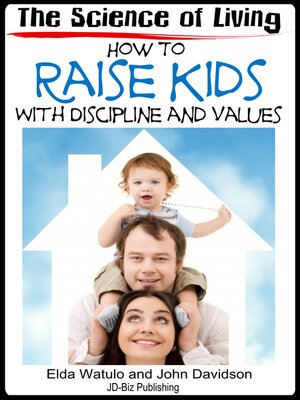The Science of Living
ebook ∣ How to Raise Kids With Discipline and Values · Living with Character
By Elda Watulo

Sign up to save your library
With an OverDrive account, you can save your favorite libraries for at-a-glance information about availability. Find out more about OverDrive accounts.
Find this title in Libby, the library reading app by OverDrive.



Search for a digital library with this title
Title found at these libraries:
| Library Name | Distance |
|---|---|
| Loading... |
The Science of Living - How to Raise Kids With Discipline and Values
Table of contents
Raising Successful Children
Creating Healthy Routines for your kids
How to Discipline a Child Effectively
How to Discipline a Child According to Age
Effective ways to Discipline Children — That Work!
How to Love Your Kids
Ways to Bring Out the Best in Your Children
Parenting to build character
Kids and money
Important Values to Teach Children
Author Bio
RAISING SUCCESSFUL CHILDREN
PHRASES such as "helicopter parent" and "tiger mom" have made their way into the daily language. But does over-parenting help, or hurt?
While parents who are embarrassingly and obviously inappropriate come in for ridicule, many people find themselves drawn to the idea that with just a little more parental elbow grease, they might turn kids with amazing talents and assured futures. The main question of whether there really is anything wrong with a kind of over-parenting lite still remains unanswered.
Parental involvement has rich and long history of being studied and researched. Decades of research, many of them by renown clinical and developmental psychologists, have revealed that the optimal parent is one who is responsive and involved; who sets high expectations but still respects his/her kid's autonomy.
The "authoritative parents" tend to hit the sweet spot of the appropriate parental involvement and usually tend to raise kids who perform better academically, socially and psychologically compared to kids whose parents are either more involved and controlling, or less involved and permissive.







